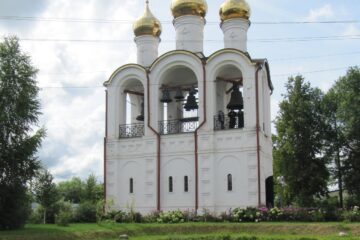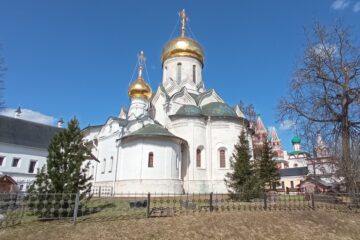We continue to study New Testament in our series of program Book of Books and this time we dedicate to the first letter to Thessalonians and the admonition to live in peace with one another.
“Encourage the timid.” The Greek noun oligopsuchos occurs only here in the New Testament and it refers to those who feel inadequate, sad, fearful, and timid. The Authorized Version of 1611 rendered it as “feeble-minded”-a translation that is entirely inappropriate today. Through persecution, perhaps, or through feelings of inadequacy of one sort or another, there were people in the church for whom life was too much. These needed to be encouraged.
“Help the weak.” Who the weak are is not quite clear. At times the Greek word antechõ is used for physical weakness, that is, sickness, but here it seems to refer to weakness in the faith (cf. Rom. 14:1) or to moral weakness in the face of sin and temptation. We should, however, not rule out other kinds of weakness, such as come from poverty and oppression. The mark of a good shepherd, according to Ezekiel 34:16, is that he cares for the weak.
“Be patient with everyone.” Patience is an attribute of God (Rom. 2:4), who shows restraint in punishing the evil, and his children are to reflect this aspect of his character. Patience is also a fruit of the Spirit (Gal. 5:22), and it is one way in which Christian agape expresses itself (1 Cor. 13:4). How inclusive the command is, is not stated; the members of the church are obviously included, but surely Christian patience should extend even to unbelievers.
CHRIST THE WAY, THE TRUTH, AND THE LIFE
“Jesus saith unto him, I am the way, the truth, and the life no man cometh unto the Father but by Me” (John 14:6)
It is the saying of an old divine, that God often orders it, that when He is in hand with the greatest mercies for us, then we are most of all sinning against Him; which He doth to magnify His love the more. In the words I have read, we find an example of this. At no time did he heart of Jesus overflow with a tenderer and more sovereign love to His disciples, than when He said, “Let not your heart be troubled.” They were troubled by many things. He had told them that He was going to leave them; He had told them that one should betray Him, that another should deny Him, that they should all be offended because of Him that very night; and perhaps they thought He was going from them in anger. But whatever the cause of their trouble was, Jesus’ bosom was like a vessel full to overflowing, and these words were the overlapping drops of love: “Let not your heart be troubled: you believe in God, believe also in Me.” Surely such words of confiding tenderness were never whispered in this cold world before; and oh, then, think how cold, how dark, how dull is the question with which Thomas breaks in upon the heavenly discourse: “Thomas saith unto Him, Lord, we know not whither Thou goest; and how can we know the way?” And yet how condescendingly does Jesus bear with their cold-hearted dullness! How lovingly does He begin the very alphabet of salvation with them, and not only answers, but over-answers Thomas-gives him more than he could ask or think. He asked about the way and the place: but Christ answers: I am the way, the truth, and the life: no man cometh unto the Father but by Me.” Regarding this, as a complete description of the gospel salvation, let us go over the different parts of it in our program “Life with Jesus Christ”.
We have several projects under development that might be interesting to you. Come and download numerous Christian books, listen to our programs, see several video lessons based on Russian Christian art, look at pictures of beautiful Alaska, the home of our first radio station, KNLS.
Thanks for reading and for listening!
Categories: RUSSIAN


